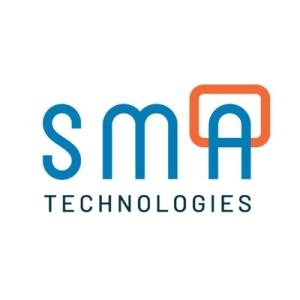What is our primary use case?
We use it as an automation tool to send and receive files and process batch jobs on our core banking system. It can also archive files for us. We use OpCon to automate anything that we can automate.
How has it helped my organization?
If I did not have OpCon, I would have to hire full-time employee to do all of the work that OpCon does. We probably save about $40,000 to $50,000 a year by being able to schedule everything. Plus it's reliable. If an employee doesn't show up for work, someone else has to fill in, and things might be late. OpCon works. I wake up in the morning and the first thing I check is my text messages. I see a text message from OpCon that End-of-Day was successful the previous evening. That way I know people can come to work and everything is on schedule.
Another benefit is that, in the past, employees would have to call the IT department to run certain batch jobs in our core banking system. We don't want to give the privilege of running a batch job to an accounting clerk because they could accidentally run a batch job that they shouldn't and cause serious problems. We were able, with an additional piece that we purchased from OpCon called Self Service — a web-based platform — to create a button for the accounting department to click.
As an example, we have to process ACH and when an ACH file comes in, the accounting department needs to look at it for certain exceptions. And then our support services department needs to look at it for certain exceptions. When each person is done with their job, they go to their Self Service page and push a button. When OpCon sees that two buttons have been pushed, it knows it can continue with the job. So the employees don't need to call IT. We've programmed OpCon to take over the job when it knows the employees have done their jobs.
We have about 40 schedules on an average day and, within some of those schedules, multiple jobs are done. When we moved to our new core banking system, we had to do everything manually. Once we put OpCon in place, it took over doing close to all of that; about 99 percent.
We continue to look for things that OpCon can do. There might be a scenario where an accounting clerk has to download a file and open it up and put files in certain places. When we find something like that, we see if we can work through the process and let OpCon do it for them, or do part of the job for them. I know there are still things out there that can be automated.
OpCon has definitely freed up some employees to do more meaningful work as a result of automation. During our first month on our core banking system, because I was responsible for that system, I or my systems administrator pretty much spent all day manually downloading files, running batch jobs, uploading files, processing things, and moving them to archives. That was good because it was a new system. Neither of us had done those kinds of tasks. So we now understand what's involved. When it came time to program OpCon, we knew exactly what we wanted done. It was very nice to move those jobs to OpCon, one-by-one, and free up our time to go back to our regular work.
We're a small organization, there are only 35 of us. OpCon freed up three people in IT and probably the equivalent of another FTE. Someone else had to deal with getting files from the Federal Reserve and sending files and they don't have to do that anymore. OpCon does it. We're now free to work on other projects or other problems. The things that OpCon does, they're routine; it's the same thing day in and out. Go to this credit card processor and get a file, bring it over here, upload it here, run a batch job, and send out an email. It gets very boring doing that every day. There's more interesting work we can do.
We also have some jobs that take a lot of network bandwidth and we use OpCon to schedule them to run at two in the morning and they're done by four. That way, people aren't affected during the day, so we've made better use of our bandwidth.
Finally, we're in Oregon, so about once a year we might have snow to the point that they shut the city down. My SA or I can remote into the credit union and check on OpCon and make sure that all the jobs are running. We have a couple of managers who can remote in and do their pieces and push the OpCon buttons to tell OpCon to finish up the job. In the past, we had to have at least two people come into the organization to process ACH or payrolls, etc. Now, we have the ability to work remotely if necessary.
What is most valuable?
The most valuable feature is being able to schedule tasks so that they reliably occur each day, each week, each month, or sometimes several times a day. We are a financial institution so we need to have our core banking system up to date. We also want to make sure that the work gets done. For example, we use it for ACH deposits and payments. So if you are depending on your paycheck to be there on a certain day of the month, OpCon makes sure it's done. The scheduler works as it should.
What needs improvement?
It is a complex product to use. Programming the schedules is complex. It does require training from OpCon. As an example, I went away for a week of training. The week after I came back from that, OpCon was onsite to set up our initial schedules. At that point, my systems administrator really took over. I should have sent him to the class, but it was good for me to learn the basics. A year later, my SA ended up going to an advanced class.
I haven't been on their website in a while, but I would like to see some online training, some videos. When I bring in a new employee — as an example, my helpdesk person is going to be moving into some network tasks, and she'll be working within OpCon down the road — it would be nice if there was some basic information for her to look at to understand this program. Even for my systems administrator, it would be helpful if there were tips and tricks available. We're always looking for more learning and more education on how we make the most out of this product. Whether it's online videos or periodic webinars that are accessible online at a later time if necessary, that would be great.
The only thing that OpCon cannot do is the following. OpCon runs a batch job on our core system that creates a file. That file needs to go to a third-party vendor. The only way to get it to that vendor is through their website which has a secure login. OpCon cannot log into a website. It only uses secure FTP. So every Wednesday morning, one of my employees has to take that file and manually log in to the website and upload it. We're waiting for that third-party company to come up with an SFTP solution. Once they do that, then things will be completely automated. I don't know how complex it would be for OpCon to log into a website, but pretty much everyone uses SFTP for file transfers these days.
For how long have I used the solution?
We have been using OpCon for a little over three years.
What do I think about the stability of the solution?
It's a very stable product.
The only time we have to be careful of is if we have an extended power outage. We've learned that we have to bring our SQL database server up before we bring OpCon online. That's true for several other systems that we run. But otherwise, OpCon tends to work as expected.
What do I think about the scalability of the solution?
I'm sure there's a lot of scalability, but as a small organization, we're using it as much as we can. We've not experienced any problems.
Our company has about $130 million in assets. I know credit unions that are billion-dollar companies and they use OpCon. So I have no concerns, as we grow, that it will continue to meet our needs.
How are customer service and support?
The support is good. When we run into issues, we can rely on SMA to walk us through how to correct any problems or do something in a more efficient way.
Which solution did I use previously and why did I switch?
We did not have a previous solution. One of my requirements, when we decided to go with our new core banking system, was that I did not want to spend my time doing these routine jobs and tasks every day. So I went out to my colleagues at other credit unions and asked them how they were managing these things. Everyone said, "You must have OpCon." I researched a little on OpCon. Our core banking platform, Corelation Keystone, put me in touch with the OpCon salesperson. They did a demo for me and I was immediately sold.
How was the initial setup?
Because we had an expert here from SMA, it was somewhat straightforward. He knew what he was doing and we had confidence in him. We didn't have any problems that I recall.
We started automating our first process on the second day of the deployment. We created some schedules and jobs that ran so that we could make sure that they worked.
An example is End-of-Day. That is a program that's done on the core banking system at the end of the day and it closes out a lot of information for accounting purposes and so forth, and then sets the date to the next day. For example, certain accounts might need dividends applied to them or loan interest charged on loans. Late notices and certificate notices need to be prepared. If it's the end of the month, there may be a statement file that goes to another vendor. We need to make sure that End-of-Day is successful. We could see the next day that yes, it was. We immediately kicked in and started getting things done.
After the OpCon person left, my systems administrator started to create new job schedules for some of the other processes that we did. One-by-one, we started moving our manual processes over to Keystone until they were all done.
What about the implementation team?
OpCon assisted us in our initial setup. They were here for three for four days. That's how long it took us to deploy the solution.
What's my experience with pricing, setup cost, and licensing?
OpCon is expensive for us as a small organization, but on the other hand, it's a lot less expensive than hiring another full-time employee.
We pay for licensing annually, including the Self Service module, a connector license to our Corelation Keystone banking platform, and for a license for each server that it's on. A lot of these are rolled up into one, but the initial implementation was a chunk of money. Now, we just pay annual maintenance.
Which other solutions did I evaluate?
I did not look into other products. The recommendation for OpCon came from most of my colleagues in my industry working at other credit unions. I did not find another solution. Everyone used OpCon, and everyone really liked it and highly recommended it. So it was an easy decision.
And SMA has a good working relationship with Corelation. They worked with Corelation to write unique jobs that run in OpCon for credit unions. That was also a very good selling point.
What other advice do I have?
The biggest lesson I have learned from using OpCon is that you really need an individual like my systems administrator who understands how a program like this works. Creating these schedules and working with the language that's required to get things done is very specialized. You have to have someone like that. Could I do it? I could, but it would take me 10 times the amount of time that it takes Sean. You do need someone on staff who understands systems, system deployment, systems operations. That's how you're able to make the most of it. The programming side of it is very basic. It's not that complex. But you have to understand how to tell it what you want to do.
Our primary user is our systems administrator; he programs everything in OpCon. I can access it when he goes on vacation and make sure that all of the jobs are working fine. At times there might be a job that failed. For example, a person is supposed to prepare a file from a third-party vendor but if they don't rename it appropriately, OpCon doesn't know what to do with it. Another example is that one of our third-party vendors will send us a file that is incorrectly prepared. OpCon won't process it. It will catch the problem and then we have to reach out to the vendor and ask for a new file. OpCon allows me to catch any mistakes that a human being makes.
We have two people using OpCon. Sean programs it and has overall responsibility for it, including deployment and maintenance. I fill in when he's not here. Luckily there aren't too many issues. I'm going to get my third IT employee involved with it more next year, to do what I do. And 10 or 12 other employees each have access to their department's site in the Self Service program. So if they're responsible for looking at the bounced-check file or ACH exceptions or paper payroll that we receive from small companies, they can do their work and push their button and that allows OpCon to finish the job.
We've been very happy with it. We're always looking for ways to use it more. We ask, "Could OpCon do that?"
I am always careful about giving someone a 10, because there's always room for improvement. But I hate to give OpCon a nine. I give them a 10.
Which deployment model are you using for this solution?
On-premises
*Disclosure: PeerSpot contacted the reviewer to collect the review and to validate authenticity. The reviewer was referred by the vendor, but the review is not subject to editing or approval by the vendor.




